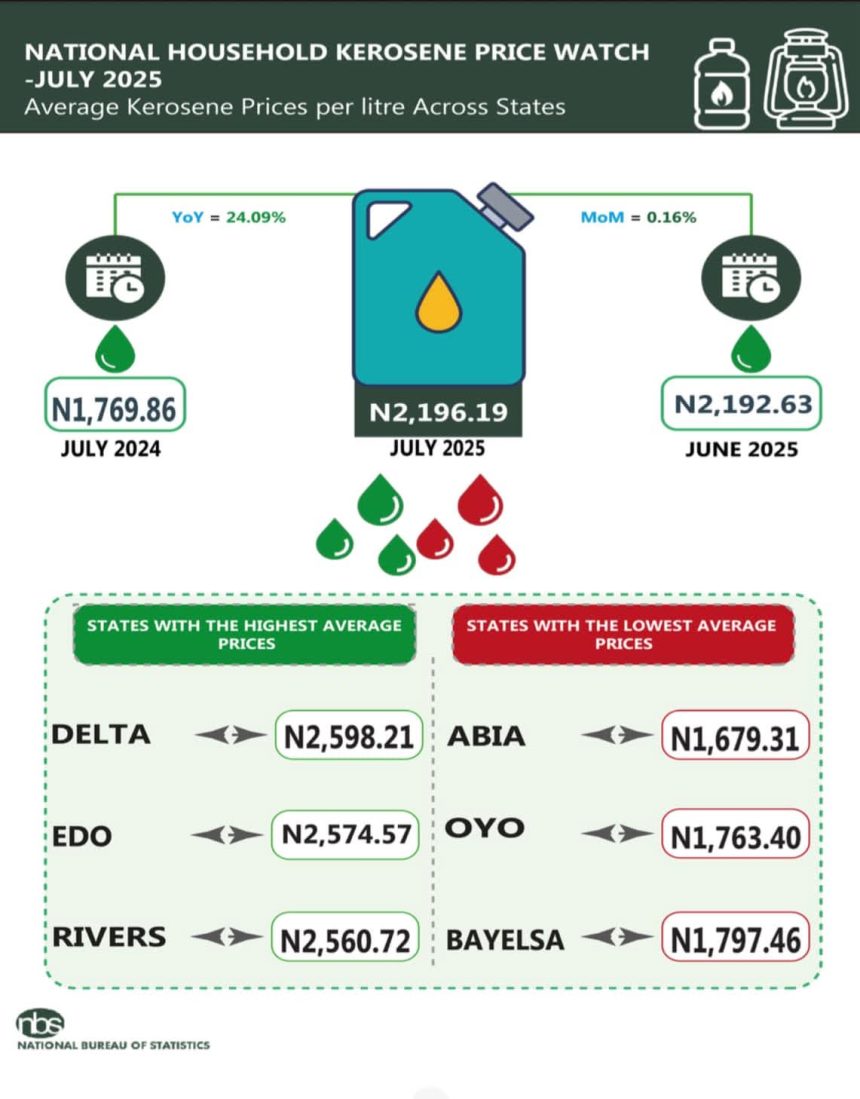By Ameh Gabriel
Nigerian households are facing deeper financial strain as the cost of Household Kerosene (HHK), a major cooking fuel, continues to rise sharply, according to new figures from the National Bureau of Statistics (NBS).
The July 2025 Kerosene Price Watch report shows the average retail price per litre of HHK climbed to ₦2,196.19, up from ₦2,192.63 in June. While this represents only a 0.16% month-on-month increase, year-on-year figures reveal a steeper surge of 24.09% compared to ₦1,769.86 in July 2024.
Across the states, wide disparities persist. Delta recorded the highest average price per litre at ₦2,598.21, followed by Edo (₦2,574.57) and Rivers (₦2,560.72). Abia, meanwhile, posted the lowest price at ₦1,679.31, with Oyo (₦1,763.40) and Bayelsa (₦1,797.46) trailing closely.
For kerosene sold in gallons, the average price rose to ₦8,695.90 in July, slightly above ₦8,684.15 in June. However, year-on-year, the increase was far more drastic at 50.92%, compared to ₦5,762.10 in July 2024. Edo again led with the highest gallon price at ₦10,285.57, while Abia reported the lowest at ₦6,746.89.
The unrelenting rise in kerosene prices has fueled concerns about worsening living conditions, particularly for low-income families that depend on the product for cooking and heating.
In a related development, the United States Government has pledged $32.5 million to the World Food Program (WFP) to support food and nutrition assistance for Nigeria’s most vulnerable populations.
According to a statement from the US Embassy in Abuja, the funds will provide aid to 764,205 people across the North-East and North-West, regions hardest hit by conflict and insecurity. The package will also deliver nutritional support to 41,569 pregnant and breastfeeding women and girls, as well as 43,235 children, using electronic food vouchers.
“This support is targeted at saving lives and alleviating suffering, particularly among women and children in conflict-affected areas,” the embassy noted.
The donation follows a broader $93 million emergency food program announced by Washington in August, targeting hunger in 13 nations 12 of them in Africa including Nigeria, Sudan, Niger, Ethiopia, and the Democratic Republic of Congo.
Analysts warn, however, that while international aid offers temporary relief, Nigeria must take urgent steps to curb inflation, stabilize energy prices, and boost food security to shield households from deepening economic hardship.



